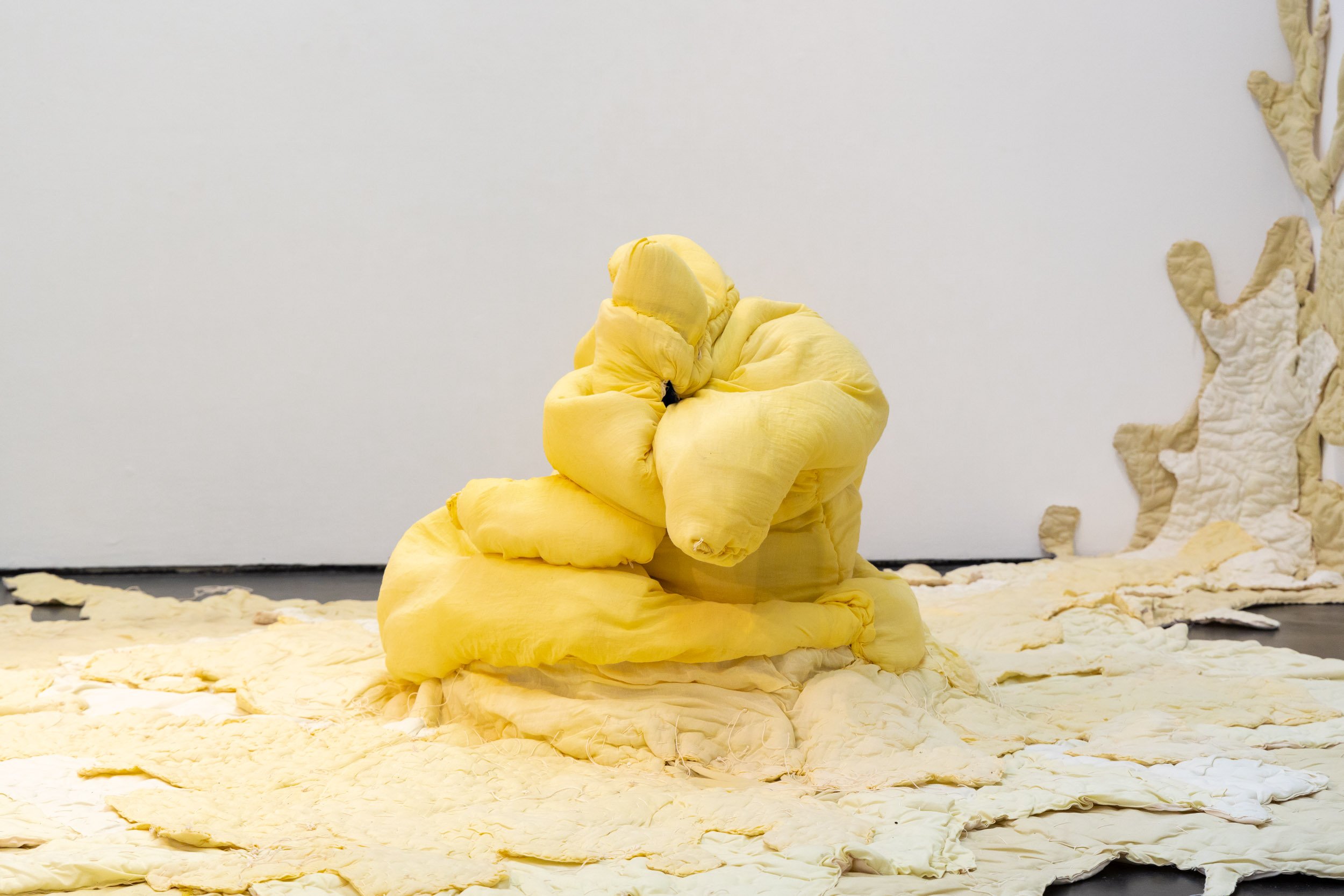within dalit spores: Godhadi
July 18 - 27
Closing event & poetry reading
Sat 20 July
4 - 6pm
Free & open to all
Presented by intergenerational collective Godhadi, within dalit spores is a sound and textile installation that announces a dalit revolutionary presence, the caste system’s most oppressed. Godhadi is a dalit feminist collective hosted by artist and researcher Abhaya Rajani along with the India-based artists, Rajani Kadam, the late Satyawati Kadam, and the late Sugandha Kadam. By reinscribing caste and gender-assigned materials and labour – sewing, cooking, caretaking – into sites for dalit flourishing, Godhadi’s installation ushers a plural, fugitive life force from the woodworks of unliveability. In the artist’s own words:
This show is the beginning of something which was never meant to grow quietly in places of creativity but always defiant in the adversity of oppression. Yet here we are finding gaps between the exclusive, unaccommodating walls; resisting all the storms that arrived during this project, casteist storms which will certainly haunt us beyond. While the strength of our ancestral resilience is nourishing us, we are trying to survive here and we are dreaming to thrive here. Through our presented work, we are intending to rewrite this oppressive history by resisting the imposed shame onto our body, food, touch and love.
In adversity.
In the fractures of your walls.
In resistance.
We are here to germinate.
Documentation images credit: Jules Lister.
Godhadi is an inter-generational collective hosted by Abhaya Rajani, a London-based dalit queer feminist artist along with the India-based artists, Rajani Kadam, the late Satyawati Kadam, and the late Sugandha Kadam. Through dalit lineage and our work which was considered womanly duties, we are dreaming to reimagine our labour in a contemporary art context. We are invested in constructing spaces through our collective transdisciplinary practices of making, cooking and performing to resist centuries-old oppressive injustices of Brahminical patriarchy.











